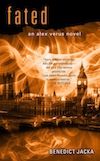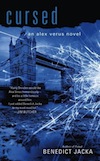Part One of this article introduced the Isolationist and Guardian factions: this part will cover Crusaders, Centrists, and Directors.
Crusaders
The Crusaders are the most militaristic amongst the Light Council. Very few Light mages are completely comfortable with Dark ones, but the Crusaders want to go further: they want the Council to be actively opposed to the activities of Dark mages and take the initiative in stopping them. ‘Taking the initiative’ can mean anything from police work to starting a war, depending on the individual Crusader’s beliefs.
Almost no-one on the Light Council likes the Crusaders, but the Crusaders don’t care. They think Dark mages are evil and need to be stopped, and they aren’t going to accept Dark behaviour just because the rest of the Council does. Most Crusaders believe that the Concord is just a paper peace and can’t possibly last – sooner or later war’s going to break out again, and the Crusaders are going to be ready when it does.
As the most militant and the second-most radical faction, the Crusaders have a lot of enemies. Isolationists don’t like them because Isolationists think the normals are the real problem, Centrists don’t like them because Centrists want peace, Directors don’t like them because blatant magical battles really mess up the Directors’ attempts at subtle political control, and you can probably guess how well Crusaders get on with the Unity Bloc. The only faction the Crusaders like are the Guardians: they’re the only other group who aren’t willing to turn a blind eye to the kind of things Dark mages do in their free time.
Note: Crusaders don’t call themselves ‘Crusaders’. They think of themselves as proactive Guardians. ‘Crusaders’ is a label stuck on them by other factions, meant as an insult.
Centrists
The current version of the Centrist faction evolved in the aftermath of the Gate Rune War, although the opinions they subscribe to have been around since more-or-less forever. What Centrists really want is stability. They don’t want war with the Dark, but they don’t have any grand plans to reconcile with them either. They don’t see normals as a threat to be avoided, but neither do they want to get particularly close to them. What they want is peace, and for things to stay mostly the same.
The Centrists are probably the biggest faction, but their size is a bit misleading. ‘Centrist’ can mean that a mage is actively committed to balance and peace, but just as often mages get lumped in with the Centrists simply because the Centrists are the most moderate of the factions. While the Centrists have a lot of political power, they tend to accumulate it just for the sake of it rather than because there’s anything in particular they want to do with it, and as a result they can be swayed more easily than the other groups.
The Centrists are usually aligned with the more reactive factions (the Isolationists, the Directors, and the Guardians) and usually opposed to the more radical ones (Crusaders, Weissians, and the Unity Bloc), but they’ve been both with and against every faction at one point or another.
Directors
Directors want to guide and control normal society, for varying reasons. Some do it because they think that normals are potentially dangerous and need to be closely monitored, some do it because control of national political, economic, and military institutions is a valuable asset, and some just do it for wealth and power. Most of the Light Council’s influence over the government of the United Kingdom is due to the centuries of patient and methodical work done by the Director faction.
Although Directors don’t always see eye to eye with Isolationists, they agree with them on one thing: it’s normals who really matter, not Dark mages. Dark mages are a tiny minority who spend most of their time on infighting, while normals number in the billions. Normals have wealth, power, industry, an entire global civilisation . . . and because of their ignorance of magic they’re so very easy to control. Why waste your time fighting Dark mages when there’s an entire world out there waiting to be taken?
Of course, just because Directors don’t like to bother themselves with fighting doesn’t mean they can’t arrange it – they have a lot more power and influence in the mundane world than other mages and they’re quite capable of sending SWAT teams to kick down the doors of people they don’t like. As a result, while the more old-fashioned mages may sneer at Directors for the amount of time they spend on their ‘pets’, they usually do it outside of Directors’ hearing.
Directors get on well with Centrists and have a love-hate relationship with the Isolationists – Directors and Isolationists usually agree on end goals (mages safe and powerful, normals kept ignorant) but have completely different ideas about how to achieve them. Directors strongly dislike the Weissians: they don’t want to be equal with normals, they want to be above them, and it’s a lot easier to stay in control if most people don’t believe you exist.


